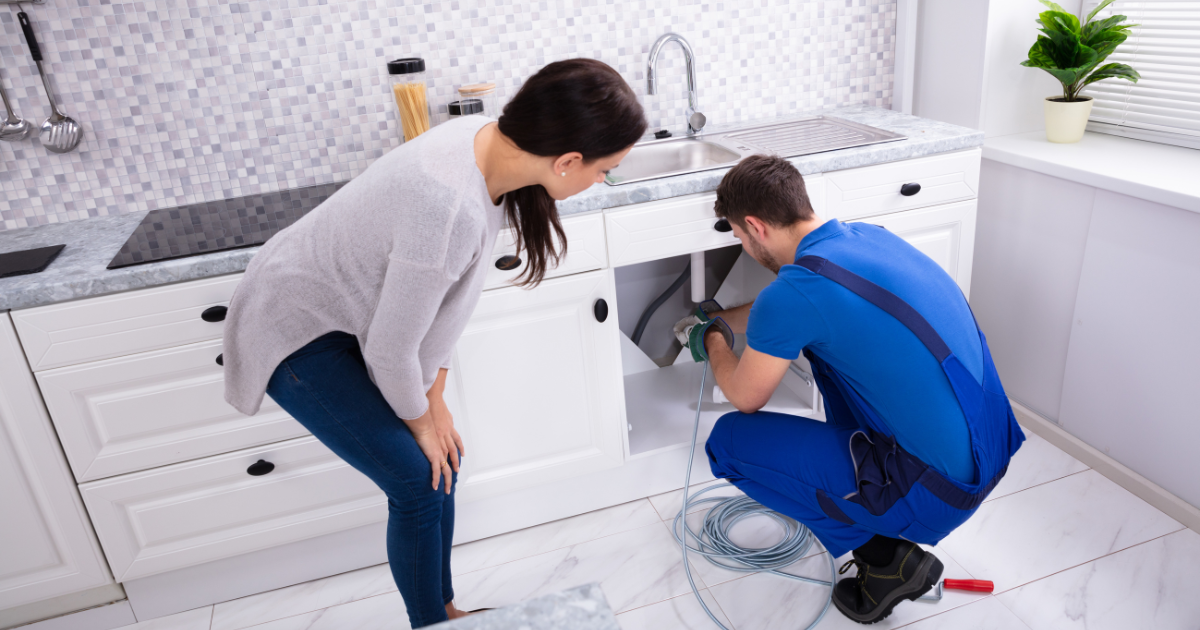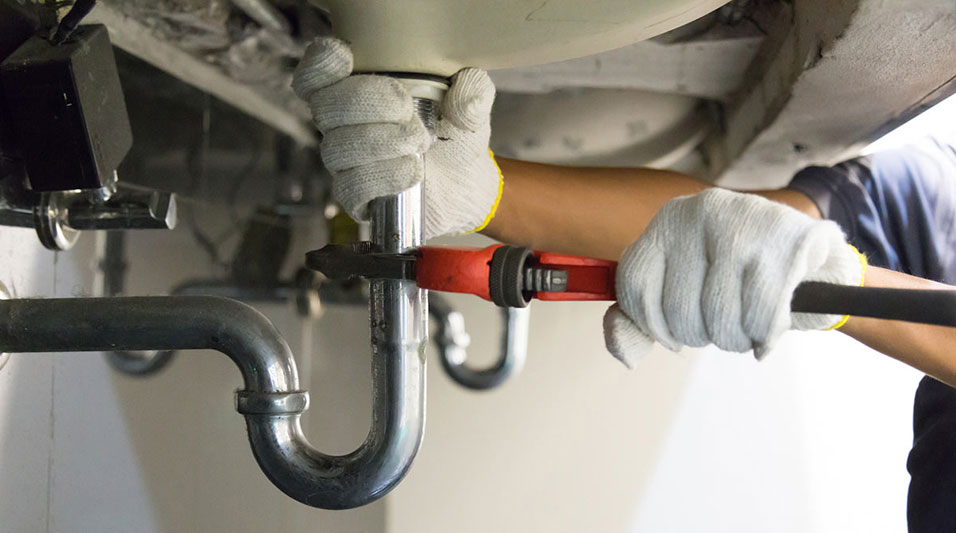Tips for Handling a Blocked Drain Before Contacting Professional Plumbers
Tips for Handling a Blocked Drain Before Contacting Professional Plumbers
Blog Article
This article listed below relating to Tips for Dealing with Clogged Drains and Sewer Lines is relatively enlightening. Try it and draw your own assumptions.

Introduction
Taking care of an obstructed drainpipe can be an irritating experience, disrupting day-to-day activities and possibly creating damage to your home. Nonetheless, prior to connecting to pipes specialists, there are actions you can require to resolve the concern on your own. In this overview, we'll check out do it yourself remedies and safety nets to take on a blocked drainpipe effectively.
Recognizing the Concern
The first step in attending to a blocked drainpipe is identifying the indicators. Sluggish drain, gurgling sounds, foul odors rising from drains pipes, or water backing up prevail signs of an obstructed drainpipe. Identifying these indicators early can aid prevent even more difficulties.
Picking the Right Plumbing Service
When choosing a plumbing service, take into consideration variables such as experience, licensing, and customer evaluations. Choose a trustworthy plumbing technician with a performance history of high quality craftsmanship and clear prices practices.
Expense Considerations
The price of professional drainpipe cleaning services can vary depending on the extent of the obstruction and the plumber's rates. Demand quotes from multiple providers and ask about any surcharges to make sure transparency and avoid shocks.
Security Measures
When trying DIY drainpipe cleaning, prioritize security. Wear safety gloves and glasses to avoid contact with harmful chemicals or microorganisms. Never mix various drainpipe cleansing products, as this can produce dangerous fumes.
Situation Researches
Real-life examples highlight the effectiveness of DIY remedies and the significance of prompt professional treatment in fixing drainpipe clogs.
Typical Root Causes Of Blocked Drains
Understanding the factors that add to drain clogs is essential for efficient resolution. Typical offenders consist of hair, soap residue, oil, food particles, and international things like sanitary products or paper towels. Tree origins invading underground pipes can also cause considerable blockages.
DIY Solutions
For minor blockages, numerous DIY services can be efficient. Putting boiling water down the drainpipe can assist liquify oil and debris. Baking soda and vinegar or a mix of salt and baking soft drink can function as natural cleansers. Making use of a plunger or plumbing serpent to dislodge blockages is an additional option.
Devices and Tools
Having the right devices on hand can make do it yourself drainpipe cleaning much more efficient. A bettor is a flexible tool for clearing blockages in sinks, toilets, and showers. A pipes serpent or auger can reach deeper clogs, while drain cleansing chemicals can be utilized very carefully for persistent obstructions.
Preventive Measures
To stay clear of future blockages, adopting preventive measures is critical. Install drain guards or strainers to capture hair and particles prior to they go into the pipelines. Consistently flush drains with hot water to dissolve grease buildup, and stay clear of getting rid of grease or strong waste down the tubes.
When to Call an Expert
While do it yourself remedies can solve small clogs, specific indicators show the need for expert assistance. Relentless blockages, foul odors regardless of cleaning initiatives, or multiple drains pipes supporting simultaneously are red flags that require expert treatment.
Conclusion
By adhering to the pointers outlined in this overview, you can successfully deal with obstructed drains and prevent future plumbing problems. Whether selecting do it yourself remedies or seeking specialist assistance, timely action is vital to maintaining a healthy and balanced plumbing system and maintaining the integrity of your home.
How to Clear a Clogged Drain Yourself (And When to Call In the Professionals)
What Can Clog a Drain
Dirt Skin flakes Hair Grease Soap scum Food Offset pipes Tree roots Small objects Mineral buildup DIY Tricks to Unclog a Drain
You can fix this! Once you have identified the source of the clog (or have a vague idea), you can try one or a combination of these fixes in order to clear your plumbing.
Wire Hanger or Snake
Untangle and clear out hair from a drainpipe with a homemade snake. Use a straightened-out wire hanger with a 90-degree angle hook to locate the clog and drag out any unwanted material.
Remember not to push the clog further down to where the wire hanger cannot reach! If you need to follow up with a plunger, give it a try. Your efforts might be more successful after it’s been wire-snaked.
If you want to get fancy and don’t have a wire hanger to spare, head to the store and pick up a hand-operated drain snake. You can get one for $10-$30. It may save you the hassle, and provide additional length to reach deep into the clogged pipe.
Plunger
A cup plunger has a suction cup attached to a wooden handle. The rubber creates a seal around the drain, and increases the pressure force of the plunger.
Plunge for 30-second increments to loosen the clog. This may need to be repeated over the course of 15-20 minutes. Once plunged, run the water to flush the remaining material out of the drain.
Remember– never use a plunger if you have used a chemical drain cleaner. These chemicals can splash up from the force of the plunger and cause serious injury or burns.
Boiling Water
Hot water can sometimes break up materials into a flushable amount. Dirt, grease, and soap buildup requires heat in order to unstick from surfaces.
Take your kitchen kettle and heat your water to a boil. Once it reaches a rolling boil, pour it directly down the drain into the blockage. Carefully follow with plunging, if necessary.
Don’t worry if this takes more than one try! It can often take multiple kettles and repeated plunging in order to clear a particularly stubborn clog.
Chemical Drain Cleaner
As a last resort, pick up a bottle of chemical drain cleaner. Drain-cleaning chemicals are potent, and not very good for the environment.
You may need to wear protective eyewear in gloves before handling your bottle of chemical drain cleaner. Follow the instructions printed on the bottle, and flush with water as soon as the instructions allow. Do not follow with plunging.
Baking Soda and Vinegar
As a safer alternative to chemical drain cleaner, baking soda and vinegar can create a chemical reaction that clears tough clogs.
Combine one cup of cleaning vinegar with one cup of boiling water, and set aside. Once you have done this, pour half a cup of baking soda down the drain. Give the baking thirty seconds to settle and cover a large portion of the problem drain.
Following the baking soda, pour down your vinegar and hot water solution. Once the vinegar and baking soda combine, the mixture will bubble and fix. Let this reaction fizzle in the drain for about an hour.
After an hour, follow with a kettle’s worth of hot water. The heat and liquid should flush out any remaining material.
When to Call a Plumber
If your DIY attempts haven’t cleared your clog drain, it’s time to call in a professional. It’s not worth losing access to your kitchen sink or high-traffic bathroom. A clog in a vital area can keep you from the things you’d rather be doing, and derail your routine.
Anytime a clog is causing water to spread is a time to call in a plumbing service. What starts out as a little bit of water can quickly grow into serious, expensive water damage.
Additionally, a serious clog can result in burst pipes or serious leaks. Make sure you know when to take it seriously!
https://myguysnow.com/how-to-clear-a-clogged-drain-yourself-and-when-to-call-in-the-professionals/

We are very involved in Some easy tips to fix blocked drains and I am assuming you enjoyed reading the new entry. Feel free to take the opportunity to promote this content if you enjoyed it. Many thanks for going through it.
Request An Appointment Report this page